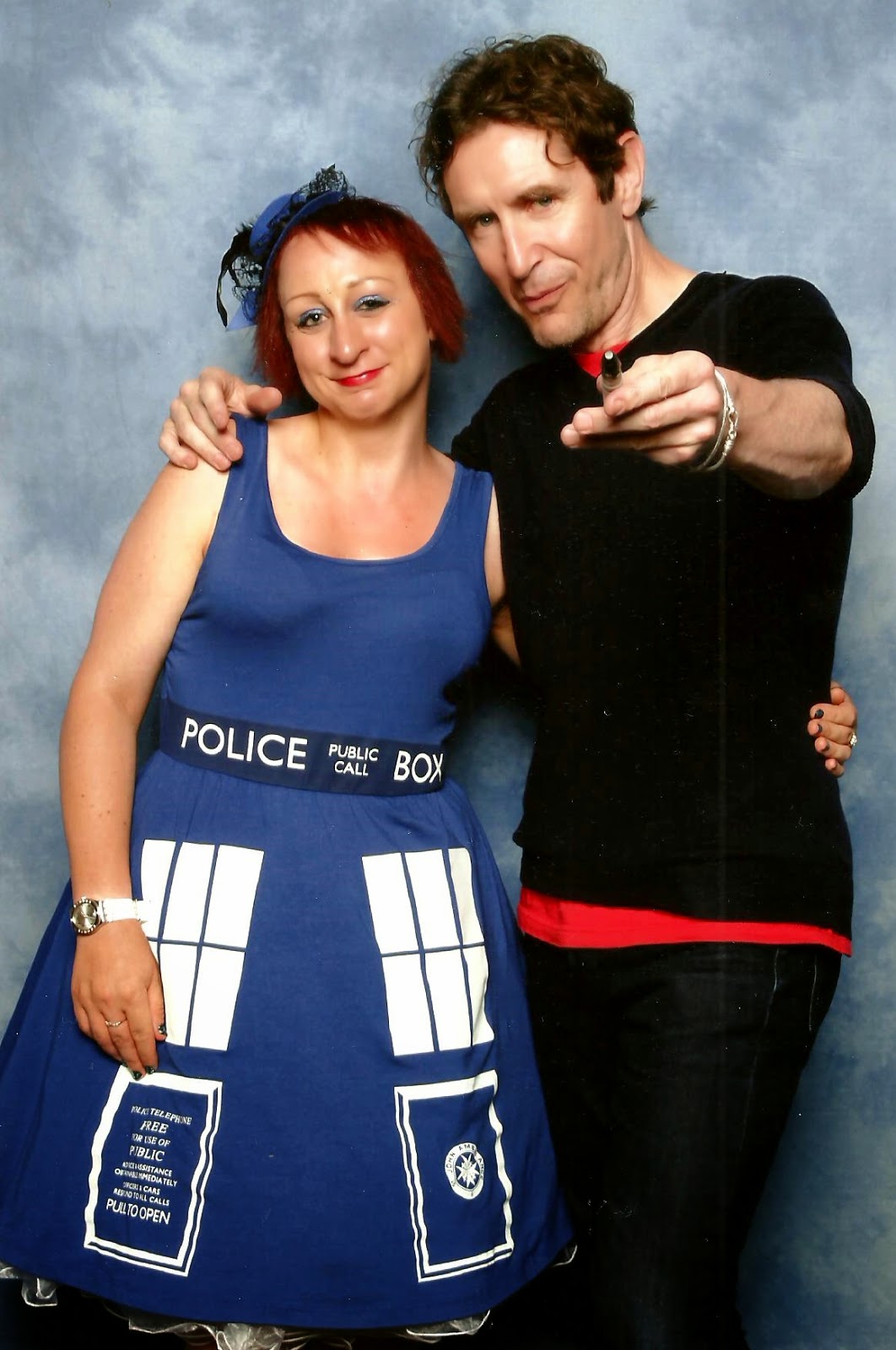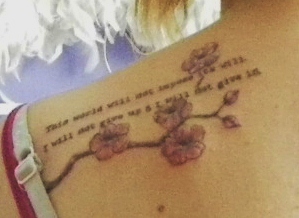Katie Hopkins. If you don't know who she is, congratulations. Your blood pressure is probably lower than mine and you're doing a much more successful job of denying the oxygen of publicity to one of the world's most obnoxious trolls, than I am doing right now.
If you really don't know who she is, let me give you a quick low-down:
Katie Hopkins first appeared on TV as part of Lord Sugar's reality show, The Apprentice, where she was frequently critical and needlessly nasty, before refusing her place in the show's final. Her notoriety (read: ability to piss off so many different people that it became a talking point/ratings winner) then ensured a flurry of requests to appear on other reality TV shows, such as I'm A Celebrity...Get Me Out of Here! and Celebrity Big Brother. Note the word "celebrity" in both of those titles. The truth is, she's not a celebrity; she appeared on a TV show, supposedly in the hope of going into the business world and then simply played up for the cameras and - to our shame - the world has lapped it up and put her on a pedestal, albeit one we like to frequently knock her from.
And why is she reviled by so many people? Why is she so notorious? For statements like these:
"To be diagnosed as depressed is the holy grail of illnesses for many. the ultimate passport to self-obsession. Get a grip, people." - March 29th 2015.
"People on benefits should have to prove they're on contraceptives to get cash." - March 27th 2015.
"Bollocks to everyone moaning about cuts to welfare. If you can't pay for food, sacrifice your iPhone and get your lazy arse to work." - March 26th 2015.
"(Jeremy) Clarkson...is a legend. The BBC are a disgrace." - March 26th 2015.
"Angelina Jolie. Smug doesn't even come close. Cutting her organs to maximise life expectancy. What's next, Fag Ash Lil? Your lungs?" - March 25th 2015.
"'I was so fat, I got bullied at school.' No child. You ate too much and people pointed it out. Own your problems." - March 24th 2015.
"I am the Jesus of the outspoken. This is my body, given up for you, to prove fat people are lazy." - March 24th 2015.
And so it goes on. Not one of those tweets/statements was made more than a week ago, which should give you your first clue as to what sort of person Katie Hopkins is.
She's an attention-seeker. She's one of those people who blames every bad thing on "political correctness gone mad" and longs for a simpler time, when we could be bigoted, racist and needlessly nasty without comeback. She's a woman grieving over Jeremy Clarkson having lost his job, whilst suggesting that the man he assaulted deserves to be abused as a result of Clarkson's sacking.
Whenever there is a news story that captures even a flicker of the public imagination, Katie Hopkins will jump right in with a soundbite. And that soundbite is written purely to court controversy.
Oh, yes, she claims she's just writing the things we're all thinking, but are too scared to say. And with over half a million Twitter followers, she certainly does have some people who agree with her twisted little rants about "common" children's names, or all fat people being inherently lazy. But let's look at the newspaper she writes for: The Sun. Known by millions as "The Scum." Known for making up lies about the dead, following the Hillsborough disaster. Known for reducing women to merely a pair of tits on a daily basis. It's hardly the greatest compliment in the world, to be given their column inches, nor is the approval of a section of their readers (who, judging by Twitter, don't know that "should of" isn't even close to being grammatically correct) a ringing endorsement of her words.
And yet, she continues. National tragedy? Katie Hopkins will find a way to say something "shocking" and detract from the real news story. Election campaign? Katie Hopkins will make it about her. Celebrity gossip? You get the idea...
Why? Because we let her.
Katie Hopkins often gets referred to as a troll. I've used the word, myself. In fact, I called her a troll today, on Twitter:
But the truth is, she's not just a troll. She's doing this quite deliberately, for our attention. Because it works. She's made a career out of being deliberately unpleasant. She's gained a national newspaper column, purely as a result of her ability to wind people up with her nasty remarks and her shock-tactics. And we're buying it.
I work with children. Some of those children have tantrums. Regularly. Why? Because they've learnt that it works. Throwing themselves on the floor and kicking and screaming will eventually wear their parents out so much that they get the toy, or the chocolate or whatever it is they want. Or they get out of having to do the thing they were protesting, because it's just easier for their parents to give in. That behaviour is learnt behaviour and it's for that reason that the generally accepted method of dealing with tantrums is to ignore them. The child eventually learns that kicking off doesn't get them what they want and they modify their behaviour accordingly.
Every time Katie Hopkins sees an opportunity to make a barbed comment and earn herself some press attention, she's throwing the adult equivalent of a tantrum. She's metaphorically chucking herself onto the floor and screaming: "LOOK AT MEEEE!" She's not truly saying what we all think, but are too afraid to verbalise; she's merely courting controversy, because that's what her entire career is built around. And every time we react, we're furthering that career. Is that what any of us want?!
We already live in a society in which a person can become "famous" simply for being on a semi-scripted reality TV show. We already make celebrities out of people who don't have any discernible talent. Let's not compound that, by continuing to make a celebrity out of Hopkins.
Next time she feels the need to weigh in on a subject and try to make it all about herself, let's not give her what she wants. No hastily made mock political campaign posters. No moral outrage. No angry responses written in the press. Let's just ignore it. And then ignore it the next time. And the time after that...
Denying Hopkins the oxygen of publicity that she craves will - eventually - see her notoriety fall. Oh, she'll still have a few fans, fawning over her "hilarious" comments on mental health issues etc, but if we collectively refuse to listen, she'll eventually end up screeching her nastiness into, if not a vacuum, then a much smaller, emptier space. Our column inches will be free for actual news. Our collective blood pressure will drop. And a z-list "celebrity" might just learn that courting controversy so blatantly gets pretty boring after a while.
So many of us claim to hate Katie Hopkins and her vile, attention-seeking behaviour, yet we're also the ones talking about it, writing articles on it and making memes to share around the Internet. We're giving her exactly what she wants. We're buying the screaming toddler a lollipop in order to stop the tantrum. But lollipops don't last long and pretty soon, the toddler will be throwing herself back onto the floor again. And so the cycle continues...
It's time to completely ignore Katie Hopkins. It's time to stop playing into her hands and start walking away. It's got to be worth a shot. Let's pretend she doesn't exist.
We need to not talk about Katie.


























